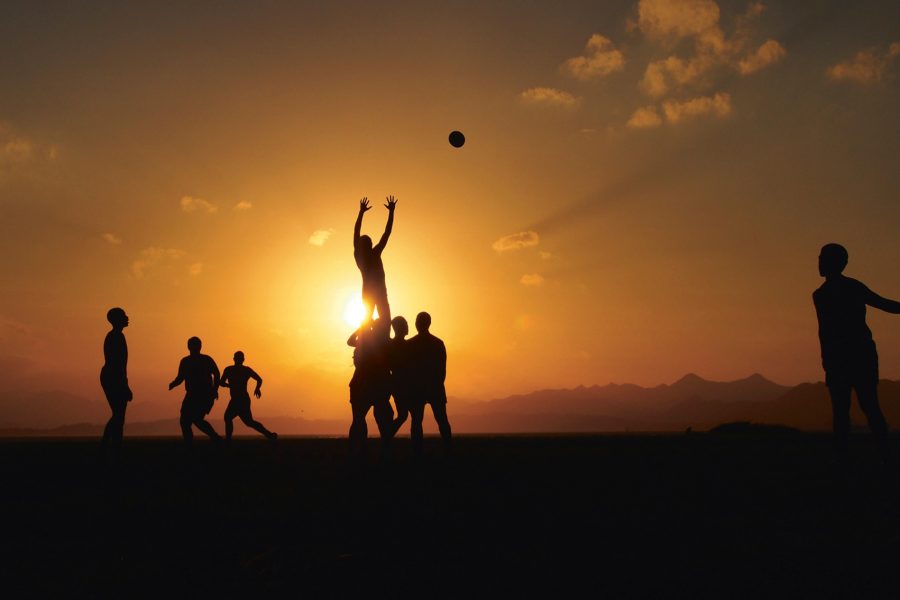There was some confusion among members of the world press huddled under the stands of the temporary stadium in Rio de Janeiro last August. Who was this guy enthusiastically celebrating Fiji’s Olympic rugby sevens victory? A coach? A team official?
In fact, we were being treated to an audience with Frank Bainimarama, the South Pacific archipelago’s prime minister. The country’s first Olympic medal – a gold, no less – was a chance for a country fractured by various military coups and constitutional crises to pull together. No wonder Bainimarama was keen to be associated with the golden glory.
Fiji had just blown away Great Britain as rugby returned to the Olympic Games after a 92-year absence. Their 43-7 win in the final was an annihilation. For the country, home to fewer than 900,000 people, many of whom live in poverty, it was not so much dream come true as destiny fulfilled.
‘Rugby has always lifted the spirit and brought us together,’ said Bainimarama, taking a rest from dancing in Rio’s rickety stands. ‘They’re all celebrating [in Fiji] – they’ve been celebrating for the past three days.’
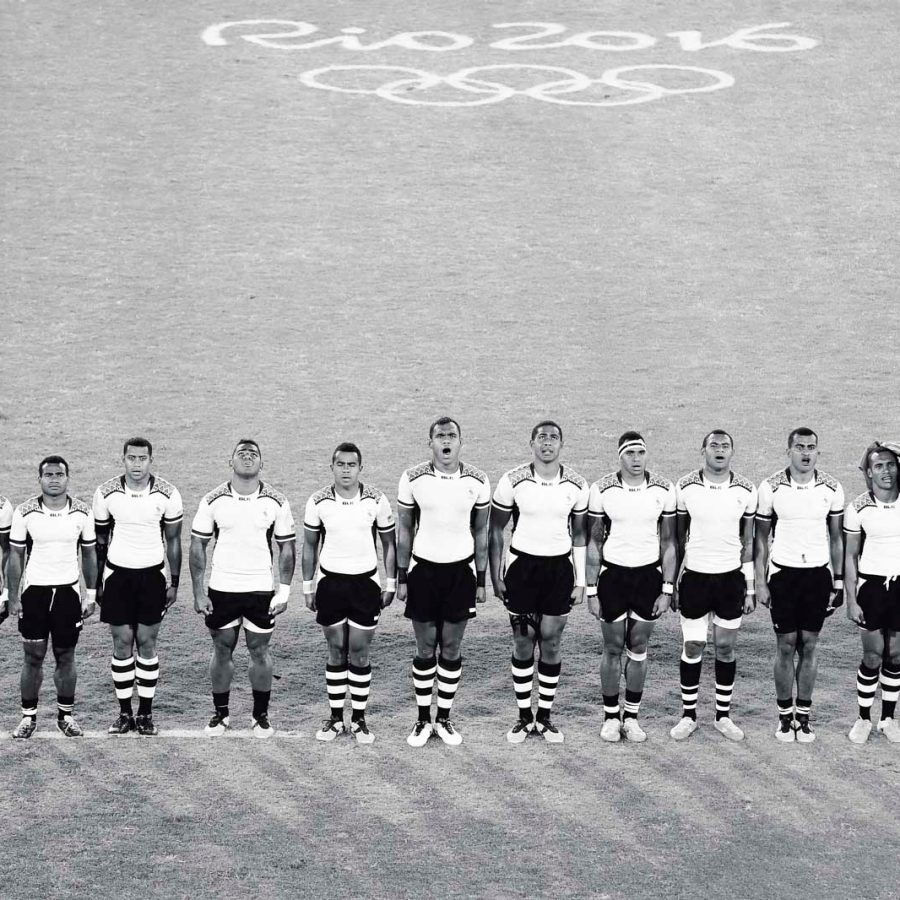
Credit: Philippe Lopez/ AFP/ Getty Images
‘Maybe this will give us a GDP boost,’ he added. I wasn’t sure whether he was joking.
Rugby was introduced to Fiji in the late 19th century by Britons and New Zealanders. It quickly took hold. Now, even in the smallest village on the smallest island, you’ll find kids playing all day long, often in bare feet and with plastic bottles instead of proper balls. According to World Rugby, there are 155,000 players out of 180,000 males aged between 14 and 40. Many in this devout country might consider it blasphemy to suggest rugby is ‘a religion’, but it’s at least as important to the national culture as, say, football is in Brazil.
‘Back home rugby is pretty much everything when you’re growing up,’ says Lex Kaleca, who played in the same team as Fiji rugby sevens captain Osea Kolinisau. Kaleca grew up in Fiji’s capital city Suva and now plays for Hong Kong.
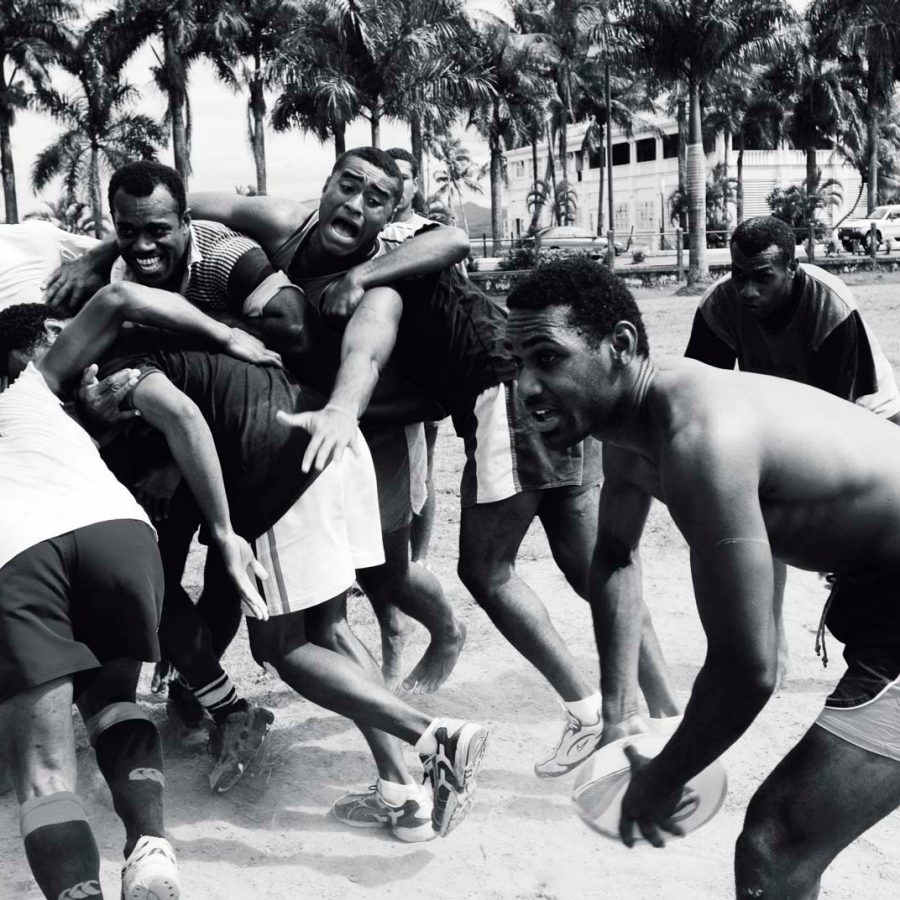
Credit: Peter Solness / Getty Images
‘As a kid everyone’s playing rugby all day, everyone wants to take it to the next level, to play for Fiji or overseas,’ he says.
Rugby briefly battled with football for supremacy at the start of the 20th century but quickly became the number one sport in Fiji (and other Pacific Islands). There’s evidence suggesting they almost literally have the game in their genes.
‘Polynesians are predisposed to possess physical characteristics potentially beneficial to rugby union performance,’ said a scientific paper published in the Journal of Sport Sciences in 2015. Another academic article by Fiji anthropologist Dr Dominik Schieder in 2011 says the game ‘promotes nation-building, by uniting members of different ethnic groups as fans and contributing to the establishment of a common “Fiji Islander” identity’. That same paper argues that rugby was the perfect replacement for tribal warrior traditions that were frowned upon by colonial rulers: ‘Playing the game gives expression to physical and moral values which Fijians identify with warfare and martial traditions, both important elements of pre-colonial Fijian societies.’
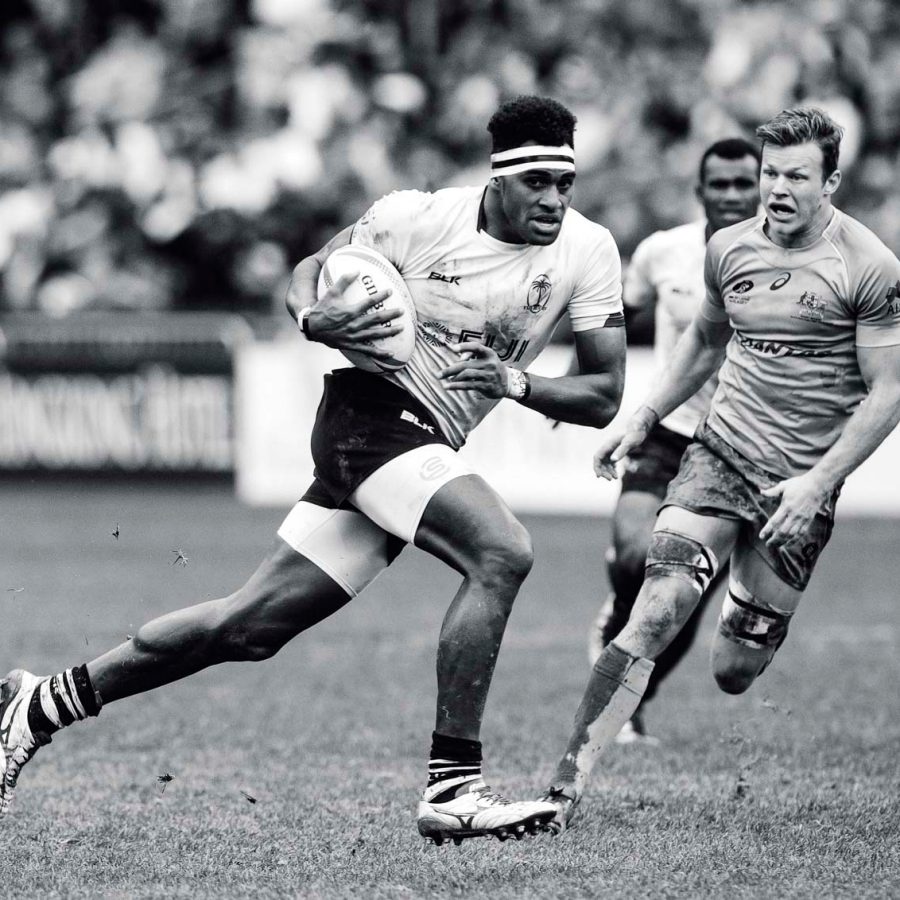
Credit: Mike Pickles / Future Project Group
Fiji particularly excels in the sevens format – 14-minute games (seven minutes a half) featuring seven players a side on a full-size pitch, putting the onus on speed and flair – that was played for the first time in the Olympics last year. On a chilly evening in the northern outskirts of Rio, Fiji’s heroes delivered in style. Their breathtaking brand of rugby – all flowing passing moves, one-handed catches, behind-the-back passes, incredible speed and strength – was an eye-opener for many of the world’s media, not to mention hundreds of millions watching on TV. Bainimarama declared a public holiday after the win – not that he had much choice, with the country partying for days.
But for Hong Kong Sevens fans, Fiji’s display, though still awe-inspiring, was unsurprising. The annual Cathay Pacific/HSBC Hong Kong Sevens has delighted in Fijian flair for about 40 years. The crowd favourites have won 16 tournaments in Hong Kong, including four of the last five, and been finalists 26 times.
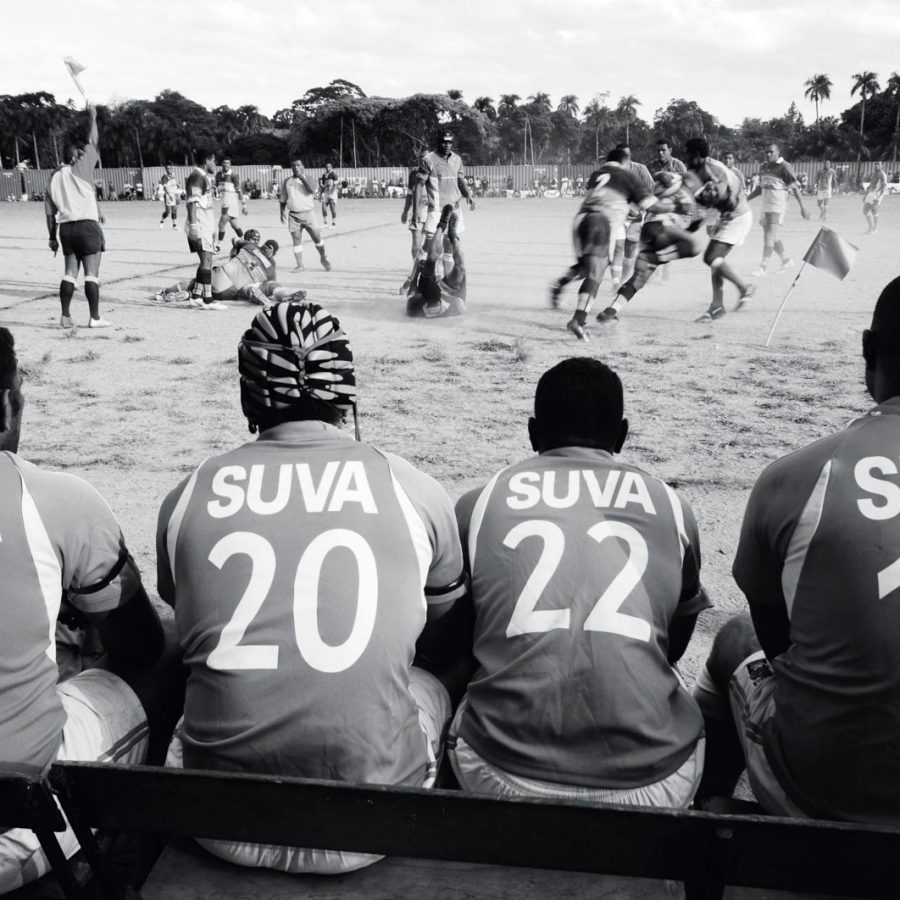
Credit: Peter Solness / Getty Images
‘It’s a massive tournament that Fiji wants to watch and win,’ says Kaleca, whose two brothers played sevens and 15s for Fiji. ‘All eyes are on the team because of the atmosphere, the crowd and the history of the tournament.’
A large travelling contingent of Fijian fans has long made Hong Kong an annual pilgrimage, turning the stadium’s North Stand into a party zone of colourful tribal costumes and non-stop singing and dancing. ‘The Hong Kong Sevens is still the one to go to for Fijian fans,’ adds Kaleca, ‘although my liver wasn’t too good for about a week after the last one I went to. I even met a couple who were there for their honeymoon.’
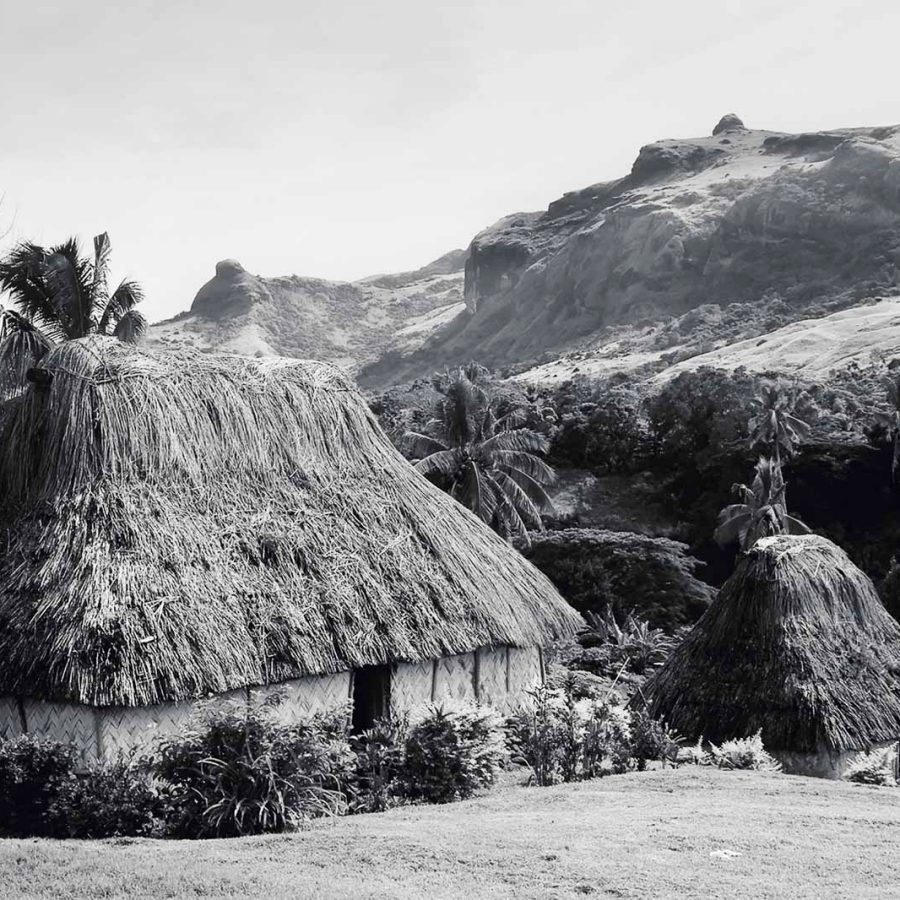
Hong Kong’s flagship sporting event was key to convincing Olympic officials that sevens was a sport that could catch people’s imagination, says World Rugby chief executive Brett Gosper.
Fiji’s coach Ben Ryan had no doubt of the tournament’s importance to the Olympic success after his team won in 2015 and 2016. ‘Vital,’ said the Englishman, who became the first non-Fijian to be made a tribal chief in recognition of the achievement. ‘When I came with Fiji and we won our last two [Hong Kong Sevens], the last one in particular was very important because it was basically a dress rehearsal for the Olympics.
‘When we left Hong Kong having won, it gave us real confidence that we were on the right track for preparing for the Olympics. Hong Kong is the closest you can get to the Olympics. It’s still the spiritual home of sevens and will remain so. I don’t think you can ever say you’re a successful sevens coach if you haven’t won the Hong Kong tournament.’
He has since left the islands for fresh challenges. His name lives on, however: quite literally, as anecdotally the names ‘Ben’ and ‘Ryan’ have surged in popularity for Fijian newborns after the team’s victory. Speaking in Rio, he struggled to convey the magnitude of what Olympic gold would mean to the people.
‘The boys are front-page news, back-page news, six o’clock TV news, they’re superstars,’ says Ryan. ‘I can have an hour’s drive to work and see 50 villages all playing rugby. It’s the national sport in every village across more than 300 islands. These boys come from very humble backgrounds, and that makes them unique,’ says Ryan.

Credit: Pete Mcbride / Getty Images
Despite the poverty and lack of facilities, Fiji had always been a frightening prospect for any opponent, especially in sevens – but they were wildly inconsistent. The secret to their success, according to Ryan, was introducing the latest research in sports science and nutrition to players accustomed to stuffing themselves with bulky carbs like taro and cassava, and instilling a sense of steely discipline and organisation.
That said, the success of Fijian players has been something of a double-edged sword, with the country’s best players regularly poached by top overseas clubs – making them ineligible for regular selection on the sevens circuit. Most leading international 15s teams also have a Fijian ‘convert’ or two because of rugby’s lax rules on international eligibility. For players raised in poverty, the riches on
offer playing abroad are too good to turn down. Whole families depend on the wages they earn, especially in the French leagues. It’s more than one man’s hopes and dreams that collapse with a career-ending injury.
So far, most of the Olympic team has remained intact, despite a recent storm in the country after Ryan made public the fact that they hadn’t been paid in three months. Ryan himself went without a wage for several months at the start of his tenure while authorities got their finances sorted out.
Fiji now return to their second home, Hong Kong, and nothing less than victory will suffice. They’re determined to show they’re still the best sevens team in the world, said captain Kolinisau – while former Hong Kong coach Gareth Baber has replaced Ryan, so he’s on familiar territory. ‘The challenge is to stay above everybody else and find new and better ways of doing things,’ says Baber. ‘It’s well documented the quality we have here…my job is to create the culture and winning ways of rugby in Fiji, not just for this generation but the next generation as well.’
As ever, success in Hong Kong will be the inspiration, the showcase – and the party.
Cathay Pacific flies codeshare to Fjii from Hong Kong
Hero image credit: Alamy
Hong Kong travel information
- China – the Chinese Mainland, Hong Kong SAR, Macao SAR and Taiwan Region
- Hong Kong SAR - English
- Chinese Mainland (China) - English
- Taiwan, China - English
- 香港特別行政區 - 繁體中文
- 中国內地 - 简体中文
- 中國台灣 - 繁體中文
- Africa
- South Africa - English
- Asia
- Bangladesh - English
- Korea - English
- Singapore - English
- Cambodia - English
- 한국 - 한국어
- Sri Lanka - English
- India - English
- Malaysia - English
- Thailand - English
- Indonesia - English
- Maldives - English
- ประเทศไทย - ภาษาไทย
- Indonesia - Bahasa Indonesia
- Myanmar - English
- Vietnam - English
- Japan - English
- Nepal - English
- Việt Nam - tiếng Việt
- 日本 - 日本語
- Philippines - English
- Australasia
- Australia - English
- New Zealand - English
